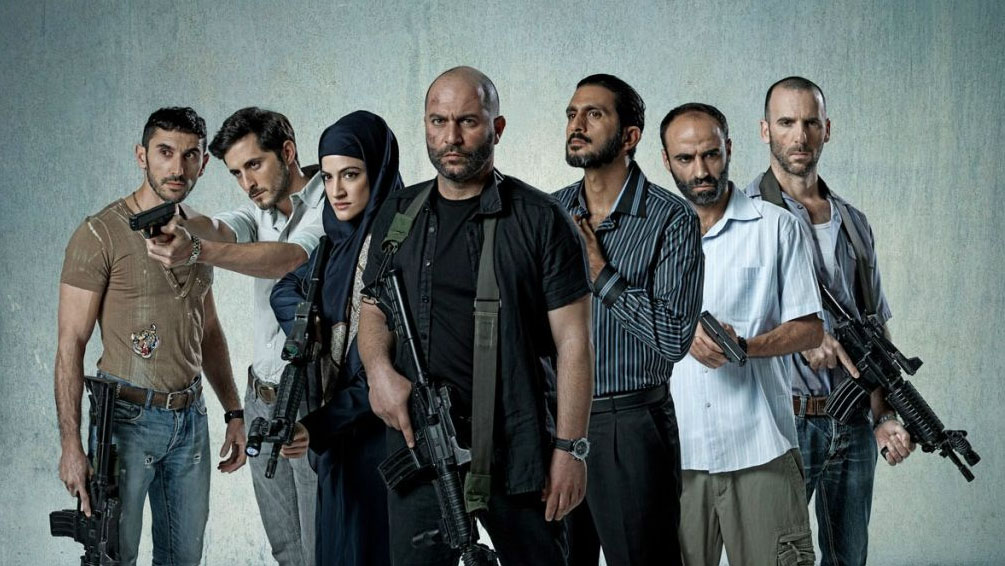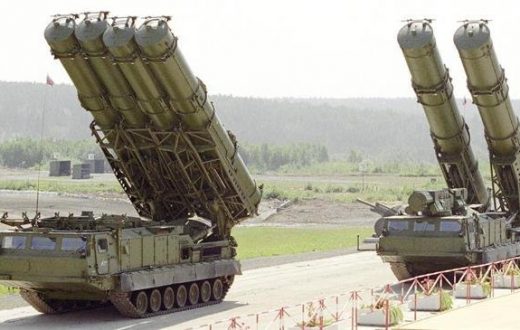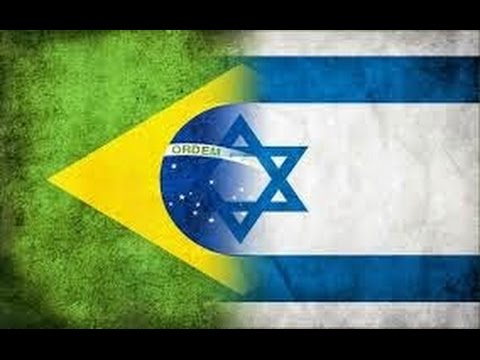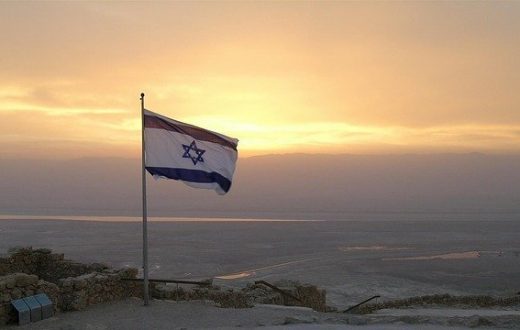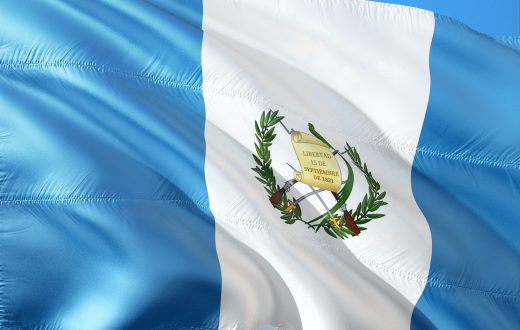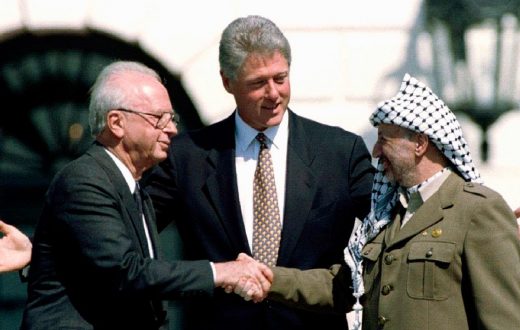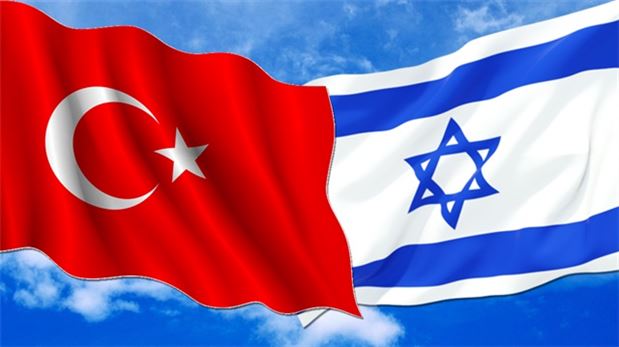“Fauda” in the daily life of IDF officers
For the first time, an Israeli series shows the lives of members of the Israeli army infiltrated into the Occupied Territories. Tour largely in Arabic, it presents the Palestinian fighters from an unusual day.
A warning before all twelve episodes of Fauda saying it is “a work of fiction, based on any real facts.” Which, of course, can only encourage viewers not to believe in a word and seek truth bursts into what is told him. In Arabic, fauda means “chaos”.
Prior to 1987, the term designated generally the situation prevailing in the occupied territories, until it degenerates into Intifada. But it is also the code name used by members of a certain Israeli undercover unit operating in the Occupied Territories when they want to report that their cover is blown and must either take action or flee immediately. Which in both cases means that they have kits to hell. It is well known, at least since the mid-1990s, that to maintain control of the Palestinian territories, the Israeli army multiplies covert operations.
Volunteers who served in elite units and willing to pose as Arabs – with the false biography, the alias, language, customs and physical appearance must be adopted for this – go live in the West Bank and infiltrating the population to gather first-hand information and deliver a mortal wound if necessary. Of course, these units are anything but secret, since their existence is openly acknowledged, but they definitely fall into the category of those things that are said “secret” by the nature of their activities. It is on this fertile ground has germinated the first season of Fauda, which just ended on Israel’s Channel Yes Action. A second season is in preparation and negotiations are underway for the series to be broadcast as it is – not in the form of remakes – the US and Europe. Do not be discourage to look for fear of not able to follow the dialogue in Hebrew.
Anyway, since more than half of the characters are Palestinian and that the story takes place in the Palestinian Territories, most of the plot takes place in Arabic with subtitles in Hebrew. This is also where one of the singularities of the series in the Israeli television offer: for the first time, we showed the Israeli viewer, and an hour of prime time, not too distorted mirror of its reality in a language which, unfortunately, is perceived as threatening by many Israeli ears.
A reality that most Israelis prefer not to see
Two men are behind the project: Lior Raz (main writer and character of the series) and Avi Issacharoff (a former journalist with Haaretz, which specializes in Palestinian issues). They each have a sacred city to counter double and triple lives led on the other side of the border: Raz because he was part of one of these famous secret and Issacharoff units because he reported to the newspaper of the extremely confused situation prevailing in this part of the world. They say they wanted to describe this reality that most Israelis prefer not to get up close and, instead of simplifying it with a picture in black and white, show it as it is – composed of more than fifty shades of too human gray, which can explode at any time in the most crimson. Fauda tells the story of a stalker. The leader of a secret unit operating in Palestine (Doron Kavillio, played by Raz) retired after murdering a Hamas wicked big, Abu Ahmed, aka “Panther”.
He leads a modest life of wine, surrounded by his family. When he learned that the Panther is still alive and is planning a new wave of atrocities against Israelis, Doron succumb to the temptation to resume service and murder a second time this enemy, he now sees as his enemy staff. This, in theory at least, was a national security cases with kind and villains – our camp is “good” and “the other”, Palestinian, “the villain” – eventually became a complex history involving stage characters who are all, in their way, very human, that is very imperfect.
Compassion
There are members of the team Doron – a group of close-knit men – and their families and loved ones, responsible for providing all the expected emotional charge. There is a woman, as it should be in any good action series: Nurit, played by Rona-Lee Shimon. There Palestinians with their rival political factions and their family ties, especially intertwined that some of the characters [terrorist hunted down by Israel] live underground and constant fear. Waves of personal and political confusion pounding incessantly from one side or the other, and the viewer is constantly tempted to identify with the side that is not his.
This series does not attempt to present a vision “balanced” of the conflict. It assumes – rightly, in my view – that for Israeli viewers, the chips are in favor of the Israeli team. In turn, the viewer can sometimes feel that the Palestinian side of the story is presented with an extra dose of compassion and understanding. But if that is the case, this is a belated recovery and much needed: it is high time that the Israelis concede that the other side also, there are human beings. Fauda was shot in Israel in Hebrew and Arabic, and with a team of Israeli and Palestinian actors during the war last summer in Gaza.
The American series production teams Tyrant and Dig [both created by Israeli Gideon Raff, the showrunner of Homeland], which also take place in the region, fled. But of Fauda continued to run in Kafr Qassem [a village in central Israel, theater in 1956 of a massacre of Israeli Arabs by the Israeli border police] as to show that, although it says “fictional” story very well told and brilliantly played extremely compelling and terribly depressing, is based on real facts and painful. And while we watch, hell continues to lash around us.
An event series
Released in February and May 2015, Fauda created the event on Israeli television. Never a program had attracted so many viewers to Yes Action fifteen years that the chain exists. “Magazines weekend dedicated their covers to the series of characters. The various twists of the plot, including anything that may compose the nightmares of the Middle East, suicide bombings in the negotiations on the hostages, were the subject of heated debate around the water coolers in businesses or in the bars in the country, “says Foreign Policy. The American magazine echoes rave reactions from the Israeli press: “‘Fauda is more than a television event, it is also a political event,” wrote the daily Yediot Aharonot:’ this program is that a successful series. It is genuine, honest and painful. ‘The series was praised by almost all TV critics in the country. Even the Israel Hayom, a pro-Netanyahu newspaper, praised production of relevant, accurate and exciting. ‘”Viewers, meanwhile, were likely to react on the Facebook page of the series. Among them Israeli Arabs and some Palestinians.

